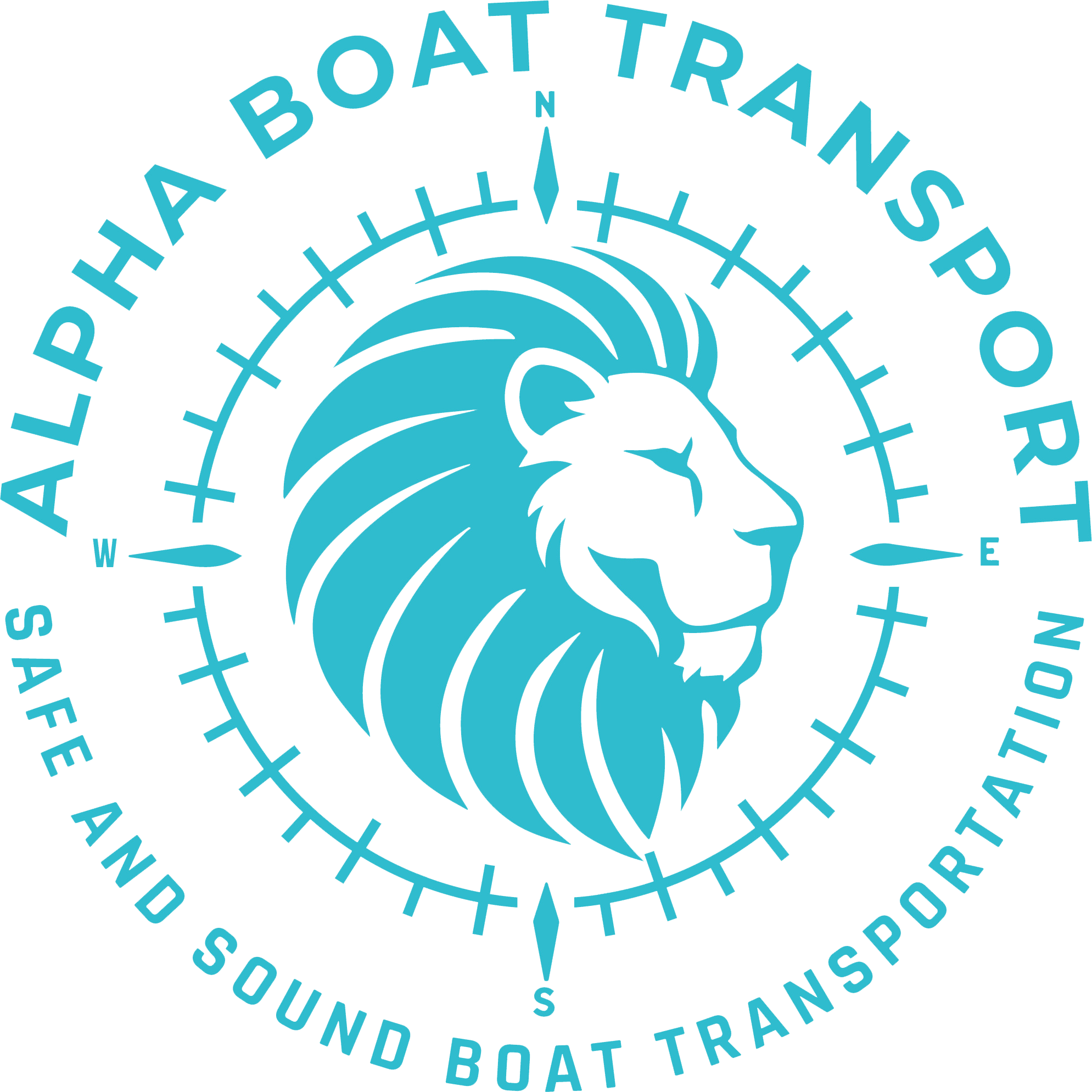The Real Risk Lurking Behind Your Yacht Moving Service
So picture this: It’s late October, skies swirling gray off the coast of North Carolina. You’re clocking forecasts every six hours, praying Hurricane Judith jerks northeast. You’ve just booked an overland yacht moving service to haul your 35-footer outta Wilmington to storage down in Ocala. But here’s the kicker most folks miss—your standard insurance policy? It likely stops cold the moment your hull hits highway asphalt. Check the fine print (go ahead, I’ll wait).
According to the boat transport overview from Discover Boating, most marine insurance policies explicitly exclude highway transit, especially incidents involving third-party haulers. And you think your existing provider’s got your back when the trailer gets jacked overnight at a truck stop in Savannah? Think again.
Let me hit you with the latest reality—cargo thefts in 2024 jumped 27%. Each hit averaged $202,000 in loss, according to recent transport insurance assessments. This ain’t theoretical. These thieves know how to hit wide-load haulers and vanish before sunrise. Which brings us to the real headache…
Inside the Coverage Gap: How Standard Boat Policies Fall Short
Most yacht owners assume their marine coverage extends through every leg of the journey. And I get it—the word ‘comprehensive’ gets tossed around more than mooring lines at a Fort Lauderdale boat show. But listen, highway-specific risks aren’t what your policy’s built for. Trailer sway in high crosswinds, axle blowouts crossing state lines, or even a lousy escort driver miscalculating a tight turn under a railroad bridge? That’s not on your hull policy—it’s a separate liability nightmare.
You start looking into specialized overland transport coverage and realize—there’s a whole underworld of clauses, addendums, and “not-covered-whens.” I had a client out of Jersey last year whose enclosed trailer lost structural integrity from a bridge vibration in Kentucky. The hauler’s commercial policy wouldn’t touch it, and his marine insurance said “Not our deal.”
If this isn’t making you double-check your paperwork already, it should.
Boat transport preparation guide
Why Reliable Yacht Hauling Services Are Critical in 2025
Here’s what changed: boat sales jumped to $55 billion last year, according to the National Marine Manufacturers Association. Combine that with intensified storm patterns and logistic backlogs, and suddenly you’ve got skyrocketing demand for land-based yacht moving services—without enough regulation to keep things tidy.
That glut of haulers popping up on Facebook claiming they’ll move your yacht for “half the price”? Yeah… half the prep work too. And when something goes sideways—and it will—they’re either underinsured, unlicensed, or just plain invisible when it’s time to file a claim.
A strong yacht moving service in 2025 needs more than a big truck and flatbed. It needs a specialized risk mitigation system. Think escort permit audits, route height-clearance prechecks, and yes—custom insurance policies that follow your investment bumper to bumper.
And that’s where Alpha Boat Transport holds the line. I’ve worked with plenty in this industry, but these guys invest in transport-grade liability, bonded operators, and GPS-tracked rigs. No surprises… except how damn efficient they are.
How to Choose the Right Yacht Moving Service
Alright, let’s break it down—here’s what to ask before signing any boat transport deal:
1. Do they carry highway-specific cargo coverage or rely on your policy?
2. Are they bonded and licensed across all lower 48 states?
3. Do they provide real-time tracking for your vessel?
4. What’s their claim history and who underwrites their policy?
5. Do they operate their own fleet or broker jobs to third-party rigs?
You’d be shocked how many outfits fumble through those answers. That’s why I keep Alpha Boat Transport in my preferred rotation—they’ve answered those questions on record, with policy docs in hand.
Bottom line: Experience matters, but so does verified paperwork.
boat transport New Jersey to Florida
State-to-State Fragility: Navigating the Patchwork of Regulations
Let me paint a lovely bureaucratic picture. You’re hauling a 12’ wide sailboat from Maine to Florida. Easy, right? Until you hit Delaware, where you need escort permits for widths over 10’. Georgia? They ban wide-loads on weekends. Don’t even get me started on Tennessee—we had to re-route six clients last year over single-lane overpass restrictions.
This is the silent killer of DIY hauling. You think Google Maps will get you there, then BAM—you’re stuck 30 miles off course with no detour signs and a $500 fine.
This is what makes working with professionals like Alpha Boat Transport such a game changer. Their routing software flags width restrictions, permits are pre-filed, and they’ve got somebody on the horn with every DOT office from Bangor to the Keys.
Emotional Toll: The Cost of a Damaged Yacht and No Coverage
So, back in 2021, I had a buddy—Mike—who sent his 40-foot catamaran from Annapolis to Tampa overland. Hired a local guy who seemed legit. They hit a pothole at cruising speed outside Roanoke, VA. Hull stress cracked the stern, rudder intake twisted, and the trailer thunked into the breaker box.
$62,000 in damage. And the best part? Neither insurer owned it. The homeowner’s freight clause had expired. The hauler disappeared. The boat sat on blocks for six months while repair litigation dragged on.
Don’t be like Mike. If there’s even a 1% window something could go wrong hauling a six-figure yacht down I-95, you bet your gelcoat it will.
Highway Planning: Details That Shield Your Yacht
Now, this is where the nerdy stuff saves you. Bridge clearance reports. Axle weight distribution. Rearward slope angle while braking uphill—yes, that’s all real.
The best yacht moving service teams treat road logistics like precision surgery. Every detail matters. You don’t squeeze under an 11’6″ clearance hauling a tuna tower without a spotter and pre-surveyed route. It’s why premium services use pilot cars, height sticks, and even road scouts in trouble zones.
For owners of powerboats and luxury catamarans, this planning is non-negotiable. And good haulers? They already know every tricky turn from Tacoma to Tallahassee.
Frequently Asked Questions
Is yacht moving service covered under standard boat insurance?
In most cases, no. Marine policies don’t cover overland transit events like trailer damage or road incidents. It’s crucial to ask if your yacht moving service offers specific highway cargo insurance.
What’s the biggest risk when shipping a yacht overland?
Beyond theft, road hazards like low clearances, blowouts, and routing errors represent major threats. Reputable services mitigate these with pilot vehicles, proper rigging, and route planning.
How can I verify that a yacht hauler is properly insured?
Request their Certificate of Insurance directly. Confirm it includes cargo coverage, liability, and that policy names them—not a third-party broker.
Do I need a permit to move my boat across state lines?
Yes, many states require oversize load permits. Some need local escorts and restrict transport hours. A legitimate yacht moving service handles this for you.
What’s the safest way to prepare my yacht for transport?
Remove all loose hardware, secure interior systems, and shrink-wrap the topside. Detailed prep like this protects your vessel from road wear and weather impact.
How much does professional yacht transport cost?
Rates vary, but moving a 35-footer over 1,000 miles can run $5,000–$12,000 depending on permits, route, and logistics. Beware of suspiciously low quotes.
Can I track my yacht while it’s in transit?
Yes. Most modern yacht moving services offer GPS tracking, real-time updates, and photo documentation—clarify this during booking.

